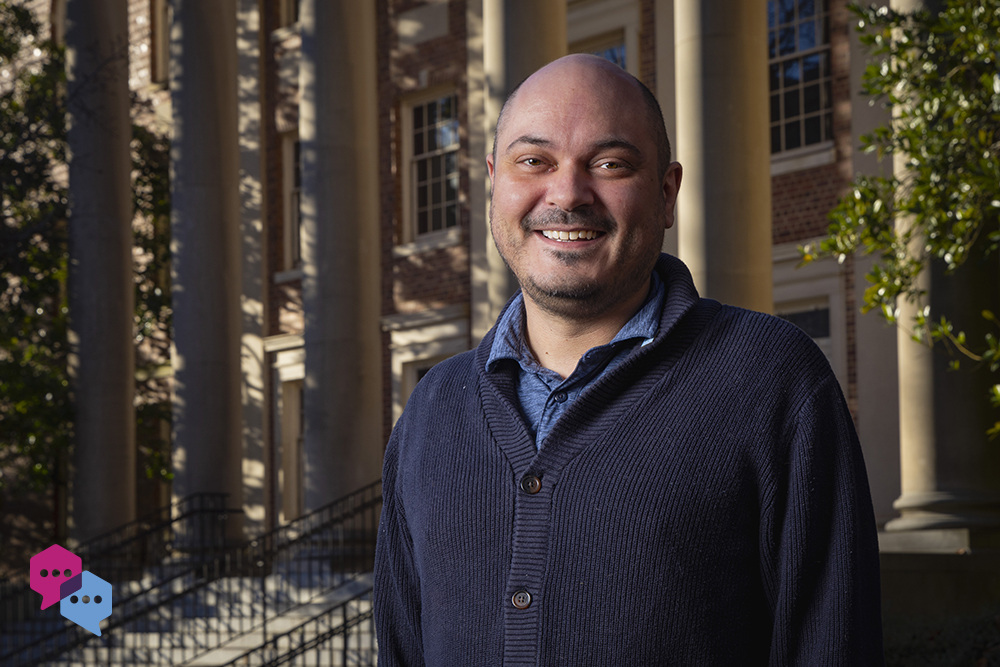Lightning Czabovsky is an associate professor in the UNC Hussman School of Journalism and Media. He studies the intersection of strategic communication, audience analysis, and diverse audiences.
Q: How did you discover your specific field of study?
A: I was working in Los Angeles examining box office returns. Tyler Perry’s “Diary of a Mad Black Woman” opened at number-one, beating much higher budgeted studio films released in twice the number of theaters. As a gay kid that viewed the world differently, seeing a film no one in the industry was even talking about until it succeeded, I was awestruck. Even though I was from a different background, seeing how the macro-environment missed diverse realities really struck a chord. Ever since, I’ve been focused on how media measures miss or don’t understand marginalized, micro, or niche audiences.
Q: Academics are problem-solvers. Describe a research challenge you’ve faced and how you overcame it.
A: As someone who primarily focuses on marginalized or niche audiences in media, it’s often hard to operationalize what that means. I have done studies about the marketing materials of LGBTQ content, but the question often is: How do we even define or measure that? I’ve learned that in research you have to use existing models or tools to speak to those in your scientific community. But I encourage others to be themselves and make their own tools or measures, especially if the existing science minimizes the nuances of people.
Q: Describe your research in five words.
A: PR measures should be nuanced.
Q: Who or what inspires you? Why?
A: My trees in my backyard. They’ve been here longer than I have — and may remain long after my time here. They’re built by mother nature to be used in their climate dynamic. They’re tall and lanky to blow in the wind when a hurricane comes. They’re a great lesson in both serenity and survival.
My husband. We have complete opposite backgrounds, yet we both value work, hard work, kindness, and people. Life is tough. But life can be kind. And he always reminds me of the things beyond academia.
Q: If you could pursue any other career, what would it be and why?
A: I wouldn’t pick another career, really. I love my students and my field. It makes my life quite valuable. But, I suppose, if forced, I’ve always loved natural sciences. So, I would be a volcanologist, seismologist, astronomer, or meteorologist — or something similar. The combination of science and saving people’s lives is where my soul is. In crises, we’re all in it together, regardless of our backgrounds. I just wish we operated that way every day. My career lets me blend my interest in people and science as a communication person who can understand the science and then try to explain it to those in need.


